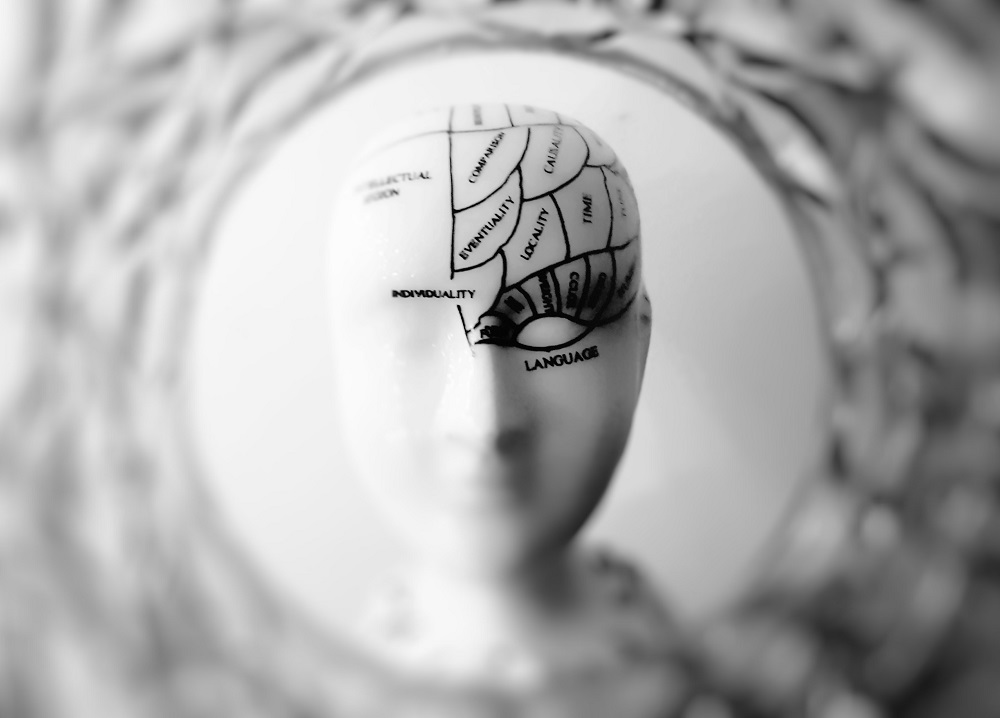The brain is a complex organ responsible for many cognitive processes including focus and concentration.

Several brain regions are involved in focus and concentration, including the prefrontal cortex, parietal cortex, and basal ganglia.
When we try to focus on a task, these regions of the brain work together to filter out distractions and keep attention on the task at hand.
What is the difference between concentration and focus?
While “focus” and “concentration” are often used interchangeably, there is a subtle difference between the two terms.
Focus refers to the ability to direct one’s attention to a particular task or activity, while ignoring distractions. It involves being fully engaged and present in the moment and directing your full attention to the task at hand.
Concentration, on the other hand, refers to the ability to maintain focused attention over a long period of time. It involves the ability to sustain attention and stay focused on a task, even in the face of distractions or fatigue.
In other words, concentration is the initial act of directing attention, while concentration is the sustained ability to sustain that attention over time.
Focus and concentration are important for productivity, learning and success. By developing these two skills, you can improve your ability to stay on task, ignore distractions, and achieve your goals.
The factors of lack of concentration and attention.

Distractions
In today’s world, there are countless distractions that can divert our attention from the task at hand. Examples include social media notifications, emails, phone calls, conversations, and environmental factors such as noise or clutter.
Take a break! To feel your inner capabilities.
Neurotransmitter imbalances.
Neurotransmitters are chemicals in the brain that help regulate mood, cognition, and metabolism. Imbalances in neurotransmitters like dopamine, norepinephrine, and serotonin can interfere with attention and concentration.
Both dopamine and serotonin are neurotransmitters, which are chemical messengers in the brain that communicate through neurons. Serotonin is linked to emotions like happiness, focus, and relaxation, while dopamine is associated with reward, motivation, and productivity.
Norepinephrine, also called noradrenaline, functions as both a neurotransmitter and a hormone, and it is vital to the “fight-or-flight” response in your body. It increases alertness, arousal and attention, constricts blood vessels, which helps maintain blood pressure in times of stress and affects your sleep-wake cycle, mood and memory.
Imbalances in this neurotransmitters can lead to anxiety, depression, attention deficit hyperactivity disorder (ADHD), headaches, memory problems, sleeping problems, low blood pressure (hypotension), low blood sugar (hypoglycemia), changes in blood pressure, heart rate.
Stress, chronic stress and anxiety.

When we are stressed or anxious, the brain’s “fight or flight” response is activated. It can interfere with attention and concentration by redirecting cognitive resources to deal with the perceived threat.
The mind is preoccupied and this can also cause physical symptoms like tension or restlessness which further impedes concentration.
People who suffer from chronic stress should practice Yoga, meditation and pranayama or any stress management technique.
Boredom
If a task isn’t engaging or challenging, it can be hard to stay focused. This is especially true for repetitive or mundane tasks.
Sleep deprivation
Lack of sleep has a profound impact on cognitive function, including attention and concentration. When we lack sleep, the brain’s ability to filter out distractions and maintain attention is compromised.
ADHD
Attention Deficit/Hyperactivity Disorder (ADHD) is a neurodevelopmental disorder that affects attention, impulse control and hyperactivity. People with ADHD have trouble staying focused and are often distracted. It lacks organization and anchoring.
Environmental factors
Noise, visual stimuli and interruptions can also interfere with attention and concentration by overloading the brain’s ability to process information.

Overall, a lack of concentration is often the result of a complex interplay of factors in the brain and the environment. By understanding these factors and working to resolve them, you can improve your ability to focus and maintain your attention on the tasks that matter most.
Hormonal changes
Hormonal changes like those that occur during puberty, pregnancy, or menopause can affect cognitive function and lead to poor focus and concentration.
Aging
As we age, our cognitive function naturally declines, which can lead to a lack of focus and attention. However, staying physically and mentally active helps slow this decline.
How to improve your focus and concentration
There are several things you can do, but the nost important thing is to have good time with yourself…only.
Go inside, far of noise and cell phone, enjoy nature and yourself…
Reduce distractions
Try to minimize potential distractions by turning off notifications on your phone, closing unnecessary tabs on your computer, and finding a quiet workspace.
Practice mindfulness
Mindfulness meditation and pranayama reduce stress and anxiety and improve your ability to concentrate.
Prioritize sleep
Make sure you get enough sleep each night to support your cognitive function. Aim for 7-8 hours of sleep per night and establish a regular sleep schedule.
Exercise regularly
Regular exercise has been shown to improve cognitive function and reduce stress.
This eliminates accumulated mental and physical toxins, boosts the immune system and regeneration.
Split Tasks
If you are working on a large or complex task, break it down, it will be easier to manage. This will help you stay motivated and focused on each individual step.
Use a planner or calendar
Write down tasks and set specific deadlines to help you stay organized and focused on what needs to be done.
Stay hydrated and take care of your diet

Drinking plenty of water and eating a balanced diet will help support cognitive function and improve your concentration.
It is important to remember that improving focus and concentration is often a gradual process and results can take time. If you continue to have trouble concentrating despite these strategies, developing yoga, meditation, and pranayama sessions can be helpful.
Yoga improves concentration and attention
Yoga is a great tool. A yoga practice involves mindful movement, breathing, and meditation, which help reduce stress and improve cognitive function. Also, some yoga poses like Vrkasana (Tree Pose) or Garudasana (Eagle Pose) require concentration and balance and train the mind to focus.
Yoga has also been shown to have a positive impact on mental health. For example, a 2017 study found that regular yoga practice was associated with improved attention and working memory in adults. the elderly.
I invite you to read this article on the significant impact of yogic practices on the brain.
Postures
Here I give you some postures and breaths that you can practice
Tree Pose (Vrksasana): This standing pose involves balancing on one foot while leaning on the other. It can help improve focus and concentration.

Eagle Pose (Garudasana): This pose requires focus and balance as you wrap one arm and leg around the other. It can help improve focus and concentration.
Downward Facing Dog (Adho Mukha Svanasana): This pose stretches the spine and can help improve circulation to the brain, which can improve cognitive function.
Breathing exercises:
Ujjayi Breath: This breathing technique involves inhaling and exhaling through the nose while constricting the back of the throat. It can help calm the mind and reduce stress, which can improve focus and concentration.
Nadi Shodhana (Alternate Nostril Breathing): This breathing technique involves inhaling through one nostril and exhaling through the other, alternating between the two. It can help balance the hemispheres of the brain and improve concentration. Learn how to practice it here.
Meditation techniques:
Mindfulness meditation is about focusing on the present moment without judgment. It can help improve concentration by training the mind to stay present and centered.

Transcendental meditation involves repeating a mantra to calm the mind and reduce stress. It has been shown to improve cognitive function and concentration. Check out my post from last week here.
With a loving-kindness meditation, one sends positive thoughts and feelings to oneself and others. This helps you improve your overall well-being and reduce your stress, which in turn improves concentration and attention.
It is important to note that yoga and meditation practices are highly individualized, so what works for one person may not work for another. It’s a good idea to experiment with different techniques and find what works best for you.
Additionally, it’s always a good idea to work with a qualified yoga teacher or meditation instructor to ensure proper alignment and techniques. Book my services for effective results.
Your diet
Diet plays an important role in improving focus and concentration. I give you dietary recommendations and ayurvedic tips who will help you. The best is to know your prakriti (personal ayurvedic constitution) to learn which food are good for you and your digestive fire.
A balanced diet should be composed with a variety of fruits, vegetables, whole grains, lean proteins and healthy fats to provide the nutrients your brain needs to function properly.
Incorporates omega-3 fatty acids. They are present in fatty fish like salmon, sardines and tuna, as well as in walnuts, flax seeds and chia seeds. They also reduce inflammation in the brain.
Limit processed foods and sugar. This is one of the best tips in Ayurvedic medicine. Processed foods and sugary drinks cause spikes and crashes in blood sugar. The impact on concentration and attention is significant. It is therefore best that you limit these foods and choose whole, unprocessed foods instead.
Stay hydrated because dehydration leads to fatigue, brain fog, and poor cognitive function. It is important to drink plenty of water throughout the day and lukewarm.
Consume caffeine in moderation. It can temporarily boost concentration and attention, but it is important to consume it in moderation as it can cause headaches, stomach aches, nervousness and delay sleep. And we are precisely looking to improve the quality of sleep!
It can also have a diuretic effect, causing flushing of the face, involuntary muscle contractions and restlessness.
Alcohol and drugs obviously alter cognitive functions and lead to a lack of concentration.
Some additional things to consider:
I give you here elements who can help you further:
Set yourself clear and specific goals. It will help youto stay focused and motivated. Make sure your goals are achievable and measurable, andbroken downbreak them down into smaller steps to make them more manageable.
Prioritize your tasks: Not all of your tasks are created equal. Identify the most important tasks and tackle them first when your focus and energy levels are at their highest.
Take breaks. Taking short breaks throughout the day helps you recharge your batteries and stay focused. Try brisk walking, stretching, or deep breathing exercises.
Uses self-talkpositive for build your confidence and stay motivated. Negative self-talk is demotivating and leads to a lack of focus.
Seek help. If you’re having trouble concentrating, don’t be afraid to ask your friends, family, or yoga teacher for help. Sometimes talking to someone else can help you gain a new perspective and find new strategies for improvement.
References
Difficulty Concentrating in Generalized Anxiety Disorder
How Concentration Shields Against Distraction
Tired and lack focus? Insomnia increases distractibility
Impact of Chronic Stress on Attention ControlThe impact of anxiety upon cognition
Attention Deficit Hyperactivity Disorder
Sleep deprivation: Impact on cognitive performance
